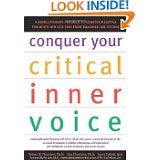5 Truths about Anxiety to Help You Stay Present
 As human beings, we may be designed to be on high-alert for danger, but with information coming at us from all directions and at high-speeds, anxiety is sharply rising, and this adaptation is starting to impair us. Many of us can’t seem to stop our minds from racing forward into fixation over what could go wrong or backward into rumination over what has gone wrong. That is why a big step toward stopping our anxiety can be taken by stopping the act of time travel.
As human beings, we may be designed to be on high-alert for danger, but with information coming at us from all directions and at high-speeds, anxiety is sharply rising, and this adaptation is starting to impair us. Many of us can’t seem to stop our minds from racing forward into fixation over what could go wrong or backward into rumination over what has gone wrong. That is why a big step toward stopping our anxiety can be taken by stopping the act of time travel.
The physical act of time travel may be something we mostly hear about in science fiction stories. Yet, mentally, most of us are traveling through time for much of our day. At any given moment, our minds are liable to wander into the past or jet off into the future. Arguably, this practice is a necessary means to acquire knowledge, make rational decisions, learn, grow, and develop. However, our continual diversions into a past that is out of our hands and a future that is not yet in our grasp is also the source of much of our anxiety. Here are five things to recognize about anxiety that can help us stay more present and feel much calmer in our lives.
- Anxiety is often about the future.
A lot of our anxiety is driven by anticipation. Life feeds us endless amounts of uncertainty that can fuel our stress and anxiety. And while our worries about what’s to come may feel like arrows flying at us, our anxiety can also strangely feel to us like a form of armor. We’re not really sure we can be without it. It can seem like it’s just a part of us. We may even think our anxiety is necessary, because, on a certain level, we believe that if we anticipate or imagine what we fear, we can somehow have more control over the situation. Some of us even hold a sense that anxiety protects us from the future, often through the misguided belief that if we worry about them, our worst fears won’t happen. In our effort to control the uncontrollable or be certain about uncertainty, we rehearse tragedy and tell ourselves scary stories, but to what effect? When we get too far ahead of ourselves, we drive ourselves crazy. We aren’t living in the moment or experiencing our actual present circumstance.
- Anxiety can source from the past.
We all replay events in our heads that can cause us to feel stressed or regretful, but some of us get stuck on a cycle of repeat that doesn’t allow us to move on. This happens in many ways, not just through explicit memories of actual events but through implicit memories, things that we don’t necessarily remember consciously but that have impacted our thoughts, feelings, and behaviors. Many present situations can trigger tensions from our past. Our anxiety can be elevated by experiences that remind us of old ways we felt or “critical inner voices” we have about ourselves or our circumstances. This is one of the main reasons that making sense of our past can be a powerful tool to understanding and overcoming anxiety in the present. It may seem like our stress about work or our worries about our relationship are entirely based on current conditions, but the ways we experience, react, feel, and torture ourselves in these scenarios are often reflections of old, unresolved feelings that have been stirred.
- Anxiety can be fueled by the critical inner voice.
A lot of the noise that pushes us into the past and future comes from our critical inner voice, a self-destructive thought process that criticizes, undermines, and poorly advises us based on unhealthy, destructive messaging we picked up early in life. This critical inner voice can be powerful fuel for anxiety.
Our anxiety-inducing inner critic can affect us at work. We imagine all the things that can go wrong and have thoughts like:
- You better get this right, or you’ll be humiliated in front of everyone.
- You should have worked all weekend; look at all the tasks piling up. You’ll never get done in time.
- You can’t manage this project. You’re a terrible communicator. People don’t respect you.
- You’re fooling everyone. You can’t do this. You’re gonna get fired.
It affects us in our relationships when we have thoughts like:
- This won’t work out. Don’t get your hopes up. Keep your distance to be safe.
- She doesn’t like you that much anymore. What did you do wrong? You have to figure it out.
- You have to get his attention, or you’ll lose him.
- You have ruined it, and now he/she will reject you!
It affects us in parenting:
- You’re going to be a bad parent; your kids will probably hate you..
- You can’t even handle your own kid. You have no idea what to do.
- You have made so many mistakes as a parent, you’re really messing them up.
- You’re acting just like your parents; and you thought you would be different!
It affects us in social situations:
- You’ll make a fool of yourself. Just keep your mouth shut.
- Be sure to say something smart, or everyone will think you’re an idiot.
- You’re so shy; you’re making everyone around you feel awkward.
- Everyone else is so funny and clever. Why can’t you be like that? What’s wrong with you?
The commentary of our inner critic makes whatever is going on in our life much worse and more filled with anxiety. The good news is that when we recognize and challenge our critical inner voice, we can feel much stronger in ourselves, more grounded in reality, and a lot less anxious. Because this negative attitude has been with us for so long, challenging our inner critic can, paradoxically, make us feel anxious at first, but this is a positive form of anxiety that signifies we are growing and changing. Ultimately, as we continue to identify and let go of our critical inner voice, we can feel more inner peace and security, because we’re no longer feeling alarmed, anxious, and set off by this inner enemy. Instead, we’re noticing that it arises and realizing that what it’s telling us is not useful or the truth, and that it is creating much of our anxiety.
- Anxiety can be heightened by social media.
One element of modern life that can trigger anxiety and our critical inner voice is social media. Before the rise of technology, humans, living tribally, were designed to be aware of and care about the well-being of about 50-60 people. Nowadays, we have so many connections and so much input about one another, and about the world at large. Of course, being informed is crucial and has many essential benefits. However, there is a lot of information coming at us that can multiply our worries. Think of all of the scary headlines in our newsfeed, the frightening news from friends. These days, most of us have a first-hand heightened awareness about what could go wrong.
This is yet another reason why we need to seek reconnection to the present moment. Information can be used to empower us, but it can also be used to frighten, alarm, and paralyze us. A lot of how we respond has to do with how we handle our anxiety. If we can stop and reconnect to our breath and to our sensory experience, we can calm down and consider if there’s an action to be taken. If the answer is yes, we can take action, which may reduce our anxiety. However, if there’s no rational action to take, we can reconnect with whatever is going on in ourselves. This may mean turning off the TV or logging off Facebook and giving ourselves the time and space to seek an inner sense of calm.
- And finally, anxiety can be overcome.
We don’t have to connect to imagined, scary future scenarios or live in our past. We can stop time traveling and grant ourselves permission to go offline – to tune into ourselves and what’s actually around us in the moment. We can pay attention to our breath and reconnect to each of our senses, and we can use some of the proven tools and techniques to help relieve our anxiety. Perhaps most importantly, we can challenge our critical inner voice. There are actual steps we can take to actively work on overcoming this inner critic. If we can get a handle on this “voice,” we can handle more, in general. We can have more perspective and put our self-compassion into practice. We can see thoughts for what they are – just thoughts, separate from us and from the reality of our experience. We can be kind to ourselves and notice when our mind is taken over by our inner critic, and gently come back into the present moment. As mindfulness teacher Amit Ray put it, “If you want to conquer the anxiety of life, live in the moment, live in the breath.” Our biggest challenge may be granting ourselves the gift of doing just that.









Leave a Reply